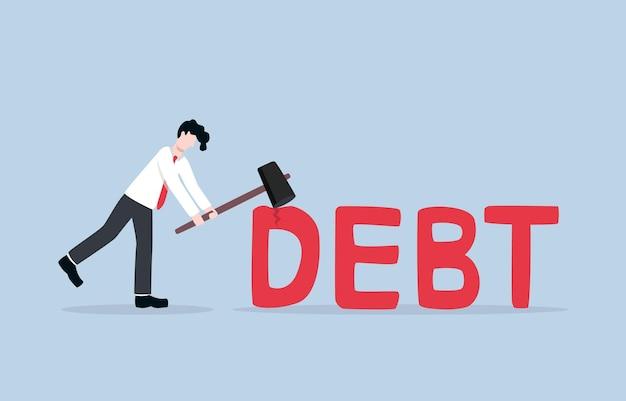From Debt to Prosperity: 10 Tried-and-Tested Methods
to Make Money and Regain Control of Your Finances!

Introduction: Understanding the impact of debt on your finances
Debt can be a heavy burden that weighs on your financial well-being. It can feel overwhelming and lead to a sense of helplessness. However, it’s important to remember that you have the power to turn things around and regain control of your finances. In this article, we will explore ten tried-and-tested methods to make money and overcome debt, paving the way to prosperity. Want To Earn An Extra $2000 Per Month?
Debt can be a significant burden, causing emotional distress and hindering your financial well-being. It’s crucial to remember you’re not powerless; you can overcome this challenge and achieve financial freedom. This article explores ten effective strategies to manage debt and pave the way to financial prosperity:
- Acknowledge and assess your debt: The first step is to gain clarity on your financial situation. List all your debts, including the outstanding balance, interest rate, and minimum payment for each.
- Craft a realistic budget: Creating a budget helps you track your income and expenses, identify areas to cut back, and allocate funds towards debt repayment.
- Prioritize your debts: Not all debts are created equal. Consider tackling high-interest debts first (avalanche method) or focus on paying off the smallest balances for quicker wins.
- Increase your income: Explore ways to generate additional income, such as a side hustle, freelance work, or selling unused items. This extra income can be directly applied to debt payments.
- Reduce your expenses: Analyze your spending habits and identify areas where you can cut back. This could include dining out less often, canceling unused subscriptions, or negotiating lower bills.
- Stop using credit cards: Avoid accumulating further debt by resisting the urge to use credit cards. Focus on paying off existing balances and consider freezing unused cards to prevent impulsive spending.
- Seek professional help: If you’re struggling to manage your debt on your own, consider seeking guidance from a credit counselor or financial advisor. They can provide personalized advice and support to develop an effective debt repayment plan.
The importance of financial literacy

One of the first steps towards financial freedom is gaining a solid understanding of personal finance. Financial literacy is crucial in making informed decisions about your money. Educate yourself on topics such as budgeting, saving, investing, and debt management. There are numerous resources available, including books, podcasts, online courses, and workshops. Taking the time to enhance your financial knowledge will empower you to make smart financial choices and set yourself up for success.
Method 1: Creating a budget and tracking expenses
A budget serves as a roadmap for your financial journey. Start by listing all your income sources and categorize your expenses. Be diligent in tracking your spending to identify areas where you can cut back. Set realistic goals for each category and allocate your money accordingly. There are several budgeting tools and apps available that can simplify the process and help you stay on track. By creating and sticking to a budget, you’ll have a clear picture of your financial situation and be able to make necessary adjustments to reach your goals. Article Writers – $250 a day
Method 2: Cutting unnecessary expenses and finding ways to save money
While creating a budget is important, it’s equally vital to identify unnecessary expenses and find ways to save money. Analyze your spending habits and look for areas where you can make cutbacks. Consider negotiating bills, shopping for better deals, or opting for cheaper alternatives. Small changes can add up over time and make a significant impact on your financial situation. Additionally, explore ways to save on everyday expenses like groceries, utilities, and entertainment. Being mindful of how you spend your money can free up funds to pay off debt or invest in your future.
Method 3: Generating additional income through side hustles
Increasing your income can help accelerate your journey towards financial freedom. Consider taking on a side hustle or freelance work to supplement your primary source of income. There are numerous opportunities available, such as freelancing, tutoring, pet sitting, or starting an online business. Evaluate your skills and interests to find a side hustle that aligns with your strengths. The extra income can be used to pay off debt, save for the future, or invest in income-generating assets.
Method 4: Investing wisely to grow your wealth
Investing is a powerful tool to grow your wealth over time. Take the time to educate yourself on different investment options, such as stocks, bonds, real estate, or mutual funds. Diversify your portfolio to spread out risk and maximize potential returns. Consider consulting with a financial advisor to help you develop an investment strategy tailored to your goals and risk tolerance. Investing wisely can help you build wealth and create a passive income stream that will contribute to your long-term financial stability.
Method 5: Paying off debt strategically with the debt snowball or debt avalanche method
Debt can be a significant barrier to financial freedom. Two popular strategies for paying off debt are the debt snowball and debt avalanche methods. The debt snowball method involves paying off your smallest debts first while making minimum payments on larger debts. As each small debt is paid off, you gain momentum and motivation to tackle the larger ones. The debt avalanche method, on the other hand, focuses on paying off debts with the highest interest rates first. This method can save you money on interest payments in the long run. Choose the method that aligns with your preferences and financial situation, and start making progress towards becoming debt-free.
Method 6: Negotiating with creditors and exploring debt consolidation options
If you’re struggling with debt, don’t be afraid to reach out to your creditors and explore negotiation options. Many creditors are willing to work with you to develop a repayment plan that suits your financial situation. You can also consider consolidating your debts into a single loan with a lower interest rate. Debt consolidation can simplify your payments and potentially save you money. However, it’s essential to carefully evaluate the terms and fees associated with any consolidation option before committing.
Method 7: Seeking professional help through credit counseling or debt settlement
If your debt situation feels overwhelming, it may be beneficial to seek professional help. Credit counseling agencies can provide guidance on budgeting, debt management, and negotiating with creditors. They can help you develop a personalized plan to tackle your debt and improve your financial health. Debt settlement is another option to consider, where a professional negotiates with your creditors to reduce the amount you owe. However, it’s important to thoroughly research and choose a reputable agency or service. $840 per week for commenting on Youtube videos
Method 8: Building an emergency fund for financial security

An emergency fund acts as a safety net during unexpected financial challenges. Start by setting aside a small amount each month until you have at least three to six months’ worth of living expenses saved. This fund will provide a buffer in case of job loss, medical emergencies, or other unforeseen circumstances. Having an emergency fund in place will reduce financial stress and prevent you from falling back into debt when unexpected expenses arise.
Method 9: Setting long-term financial goals and creating a plan to achieve them
Setting clear financial goals gives you a sense of purpose and direction. Define your long-term objectives, such as buying a house, funding your children’s education, or retiring comfortably. Break these goals down into smaller, actionable steps and create a plan to achieve them. Regularly review and adjust your plan as your circumstances and priorities change. Having a roadmap for your financial future will keep you motivated and focused on your journey towards prosperity. $30 per photo you take
Method 10: Adopting a frugal mindset and embracing a minimalist lifestyle
Finally, adopting a frugal mindset and embracing a minimalist lifestyle can contribute to your financial well-being. Evaluate your spending habits and prioritize experiences and relationships over material possessions. Focus on living within your means and finding joy in simplicity. Embrace frugal habits such as meal planning, buying second-hand, and reducing unnecessary purchases. By minimizing expenses and living intentionally, you’ll free up resources to invest in your financial future and achieve long-term prosperity.
Conclusion: Taking control of your finances and achieving prosperity
Regaining control of your finances may seem daunting, but by implementing these tried-and-tested methods, you can pave the way to a prosperous future. Remember that financial freedom is a journey, and progress takes time. Stay committed, be patient, and celebrate even small victories along the way. By understanding the impact of debt, educating yourself, and implementing these strategies, you can break free from the shackles of debt and build a solid foundation for a prosperous and fulfilling life.
Start today! Take the first step towards financial freedom by implementing one of these methods. Whether it’s creating a budget, exploring a side hustle, or seeking professional help, every action brings you closer to regaining control of your finances and achieving prosperity. Don’t wait – start your journey to financial freedom today!
